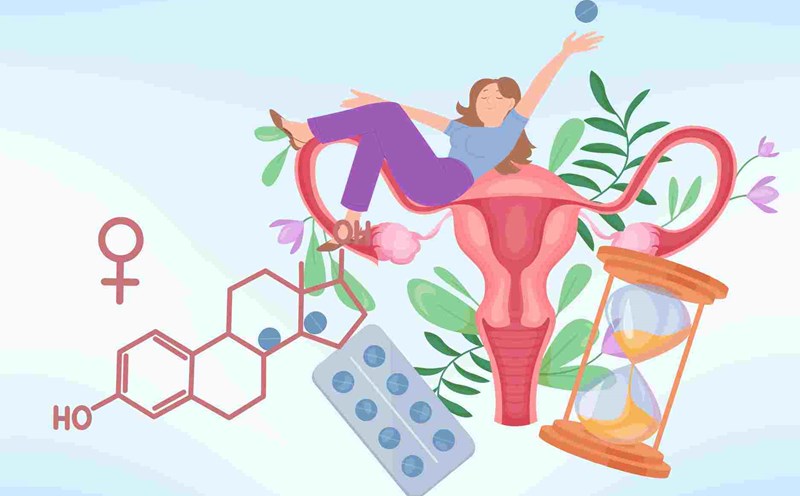Eat a balanced diet Diet is a fundamental factor that helps the body synthesize hormones.
Sexual hormones such as estrogen, progesterone, testosterone need good fats, protein, vitamins and minerals.Eating too much sugar, refined starch or processed foods will increase insulin, metabolic disorders and hormonal imbalances.
Endocrinologist Sara Gottfried (USA), author of the book "Hormon balance method", said: "Healthy fats are essential for hormone production. Eating too much fat on a diet will cause the body to lack ingredients to produce sex hormones such as estrogen and progesterone".
Therefore, increase unsaturated fats from fatty fish (almonds, mackerel), avocados, extra virgin olive oil, flaxseeds, walnuts...Supplement foods rich in vitamin B6, vitamin E, zinc, magnesium...micronutrients that support hormone production.
Avoid fast food, soft drinks, and candy because they can easily disrupt the hormonal and digestive systems.
Get enough and on time Sleep is the time when the body regenerates cells and regulates hormones.During deep sleep, the yester secrete growth hormone, the meningococcal secrete melatonin - both of which help stabilize hormones, slowing down the aging process.Lack of sleep increases the secretion of cortisol (stress hormone), reduces insulin effectiveness and disrupts sex hormones.
Sleep expert Shawn Stevenson (USA), author of the book "S sleep well to stay healthy", commented: "S sleep is the foundation for hormonal balance. If you don't get enough sleep, cortisol will increase, insulin will work less and reproductive hormones will be disrupted."
You should sleep 7-8 hours a night, best from 10pm to 6am.Avoid blue light from phones and TVs at least 30 minutes before bed to make it easier for the body to naturally secrete melatonin.A regular sleep schedule will help regulate the entire endocrine axis from the brain to the ovaries, thyroid and adrenal glands.
Gentle exercise Exercise helps improve blood circulation, supporting liver detoxification where many hormones are metabolized.
Regular exercise helps increase insulin sensitivity, stimulate growth hormone secretion and improve mood through endorphin hormone.However, exercising too much or not properly will be counterproductive, causing the body to secrete a lot of cortisol, which hinders the production of estrogen and progesterone.
Active is a drug, emphasizes Dr. Jolene Brighten, an endocrinologist in the United States. But to balance hormones, you need to exercise moderately. Gentle and regular exercises are often more effective than high-intensity exercises, especially for women over 30 years old".
Choose light forms such as yoga, fast walking, cycling, pilates about 20-30 minutes a day.
Stressful stress management is the biggest enemy of the endocrine system.
When anxiety or prolonged pressure, the body will increase the secretion of cortisol hormones to help the body react in the short term, but if prolonged will inhibit the activity of the anxious anxial anxide of the ovary gland, leading to menstrual disorders, insomnia, chronic fatigue and decrease in libido.
Dr. Mark Hyman, Director of the Center for Complementary Medicine of Cleveland Clinic (USA), affirmed: Prolonged stress is a bomb that destroys hormones. Controlling stress is sometimes more important than using functional foods."









